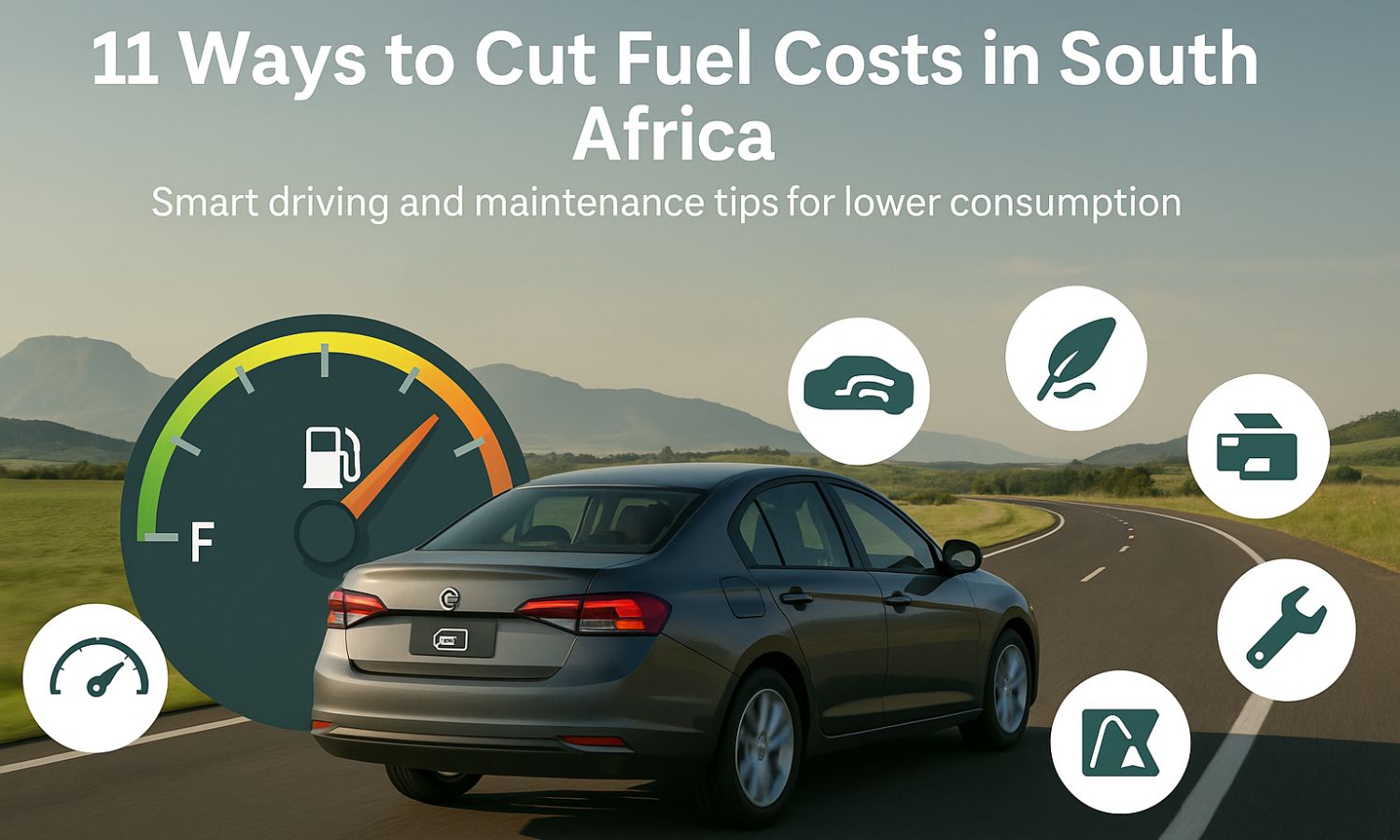
11 Proven Ways to Reduce Fuel Consumption for South African Motorists
Key Takeaways for South African Motorists
| Strategy | Potential Savings | Implementation Difficulty |
|---|---|---|
| Proper Tire Inflation | Up to 10% | Easy |
| Weight Reduction | 2-4% per 50-100kg | Easy |
| Smart AC Usage | 5-10% | Easy |
| Optimal Speed Range | 10-15% | Moderate |
| Steady Acceleration | 5-10% | Moderate |
| Minimal Braking | 5-10% | Moderate |
| Higher Gears | 5-25% | Easy |
| Predictive Driving | 10-30% | Moderate |
| Avoiding Traffic | 10-20% | Moderate |
| Minimizing Idle Time | 2-5% | Easy |
| Regular Maintenance | 10-40% | Moderate (Cost Involved) |
With fuel prices constantly fluctuating, South African motorists are feeling the pinch more than ever. The good news? You don’t need to buy a new car to improve fuel efficiency. By making simple adjustments to your driving habits and maintenance routine, you can significantly reduce your fuel consumption and save money while doing your part for the environment.
Quick Savings Calculator
Based on average South African fuel prices and consumption:
- Monthly fuel cost for average driver: R2,500 - R3,500
- Potential monthly savings with these tips: R375 - R1,050
- Annual savings potential: R4,500 - R12,600
1. Keep Your Tires Properly Inflated
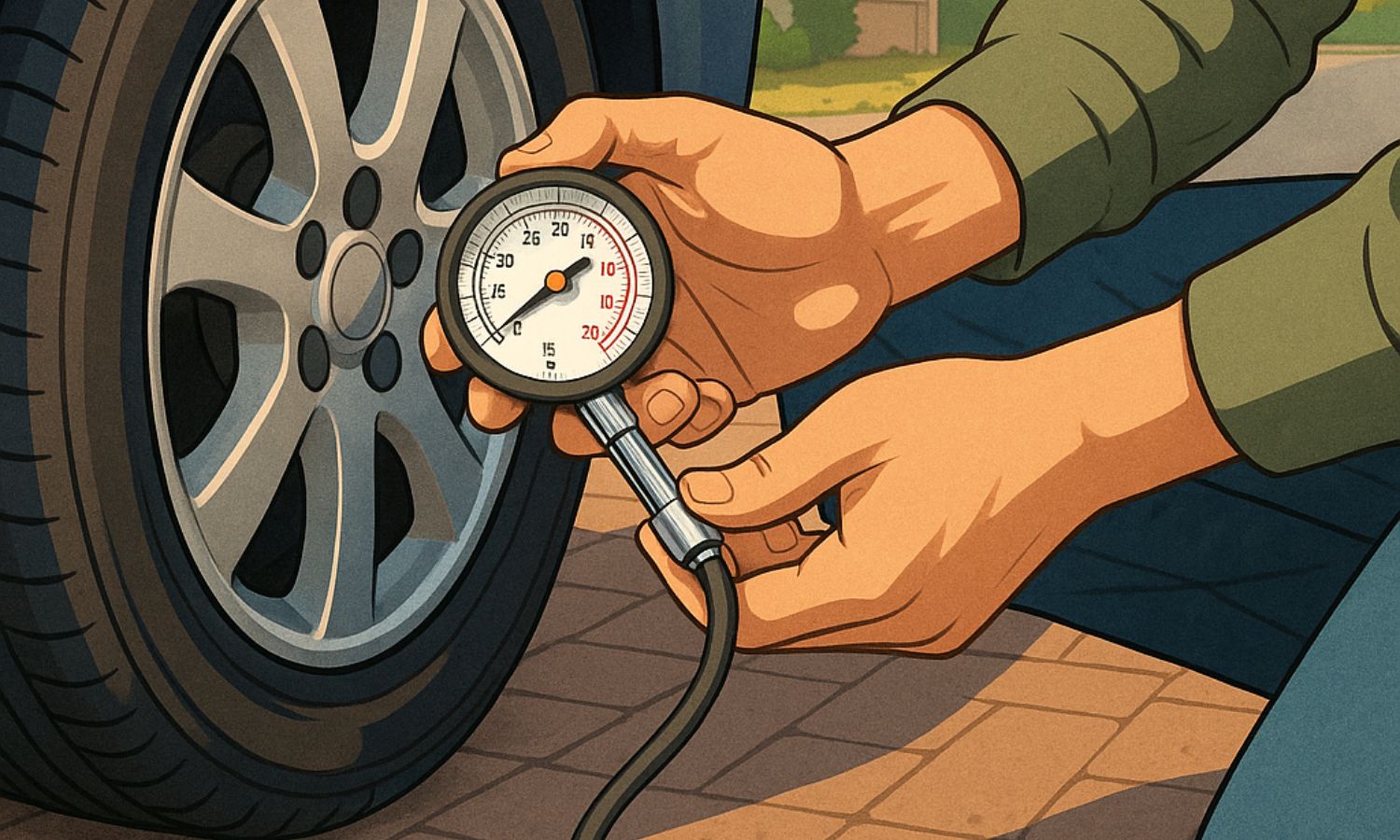
The Science of Rolling Resistance
When your tires are underinflated, they create more rolling resistance—the force that works against your vehicle’s forward motion. This increased resistance forces your engine to work harder and burn more fuel.
Impact on Fuel Economy:
- Tires underinflated by just 10 PSI can reduce fuel efficiency by up to 10%
- Properly inflated tires can improve fuel economy by 3.3%
Pro Tip
Check your tire pressure at least once a month, preferably when the tires are cold. The recommended pressure is usually listed on a sticker inside the driver’s door frame or in your owner’s manual.
2. Declutter Your Boot
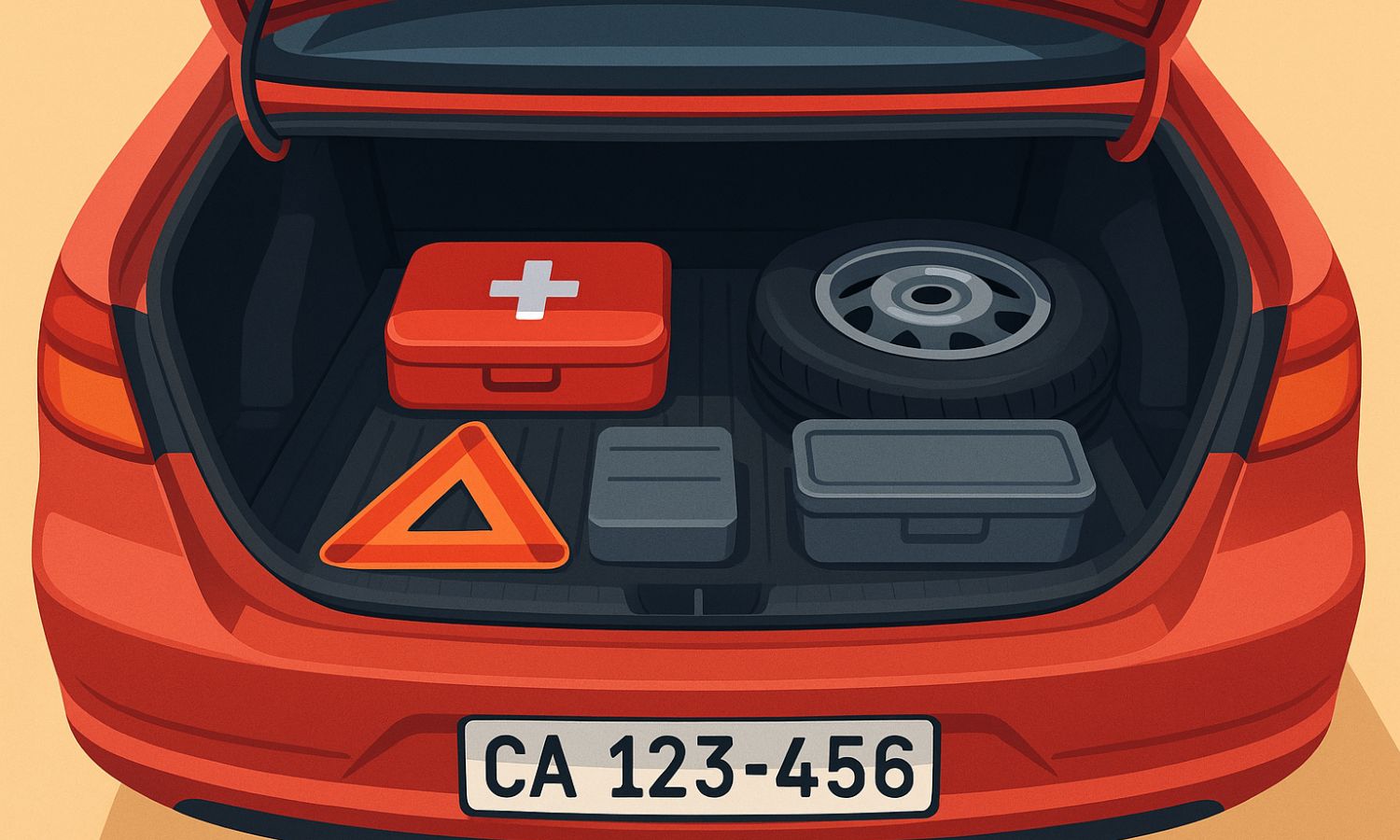
The Weight-Fuel Relationship
Every extra kilogram in your vehicle impacts fuel consumption. Many of us unknowingly turn our boots into storage units for items we rarely use.
Unnecessary weight increases fuel consumption, leading to increased carbon emissions. Research shows that carrying an extra 50kg in your car increases fuel consumption by 2%. Over time, this extra weight translates to higher fuel costs.
By the Numbers:
- An additional 50kg in your boot can increase fuel consumption by 2%
- Removing 100kg of unnecessary weight can improve fuel efficiency by up to 4%
Quick Action
Do a monthly “boot detox” to remove unnecessary items. Keep only essential emergency equipment and items you regularly use.
3. Use Air Conditioning Wisely
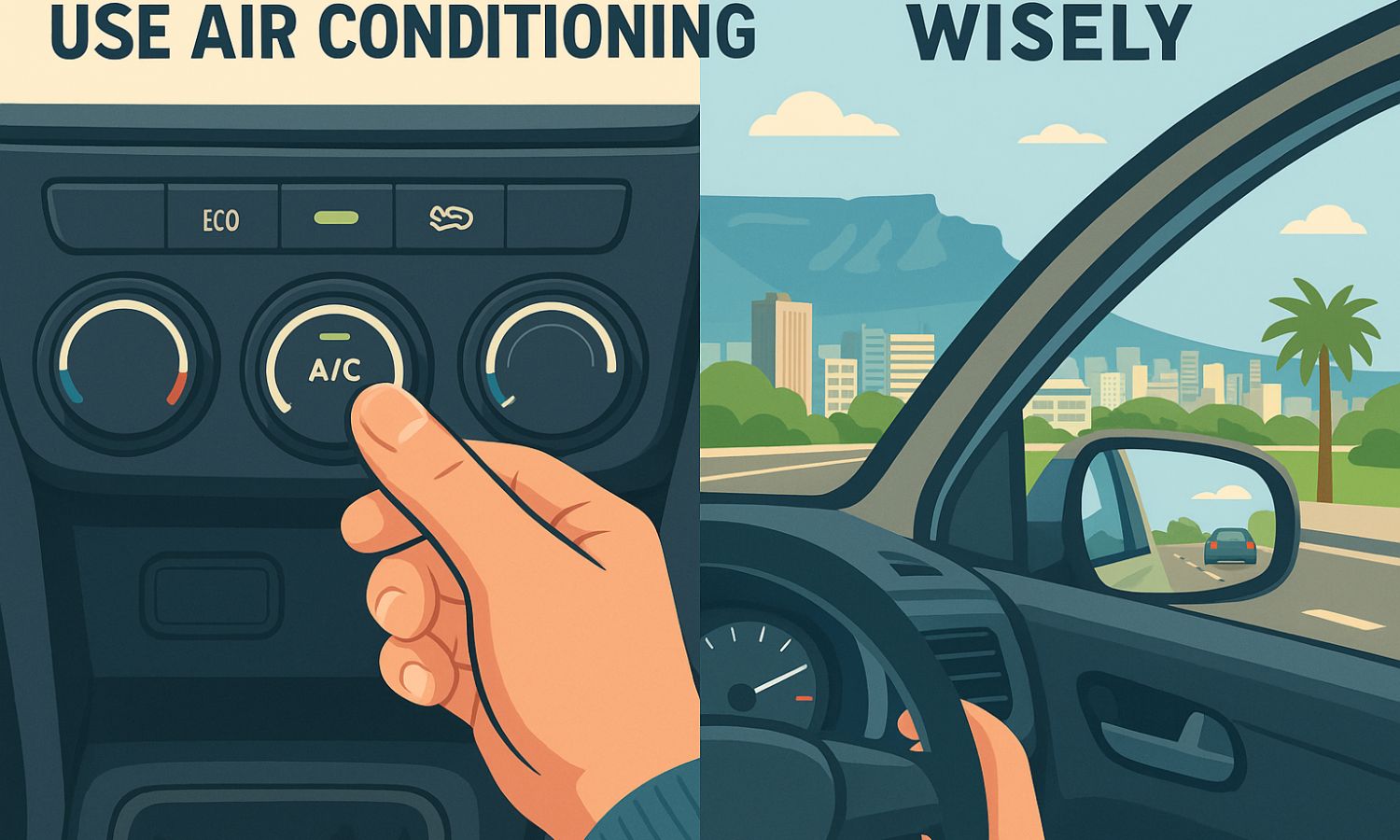
The AC vs. Open Windows Debate
Contrary to popular belief, using your AC isn’t always less efficient than opening windows. At higher speeds, open windows create aerodynamic drag that can use more fuel than running the AC.
Smart Usage Guide:
- City driving (under 60 km/h): Opening windows is more efficient
- Highway driving (above 80 km/h): Using AC is more efficient
Best Practice
On extremely hot days, use the AC to cool the car quickly, then switch to the fan-only setting to maintain temperature without the compressor running.
4. Find Your Vehicle’s Optimal Speed Range
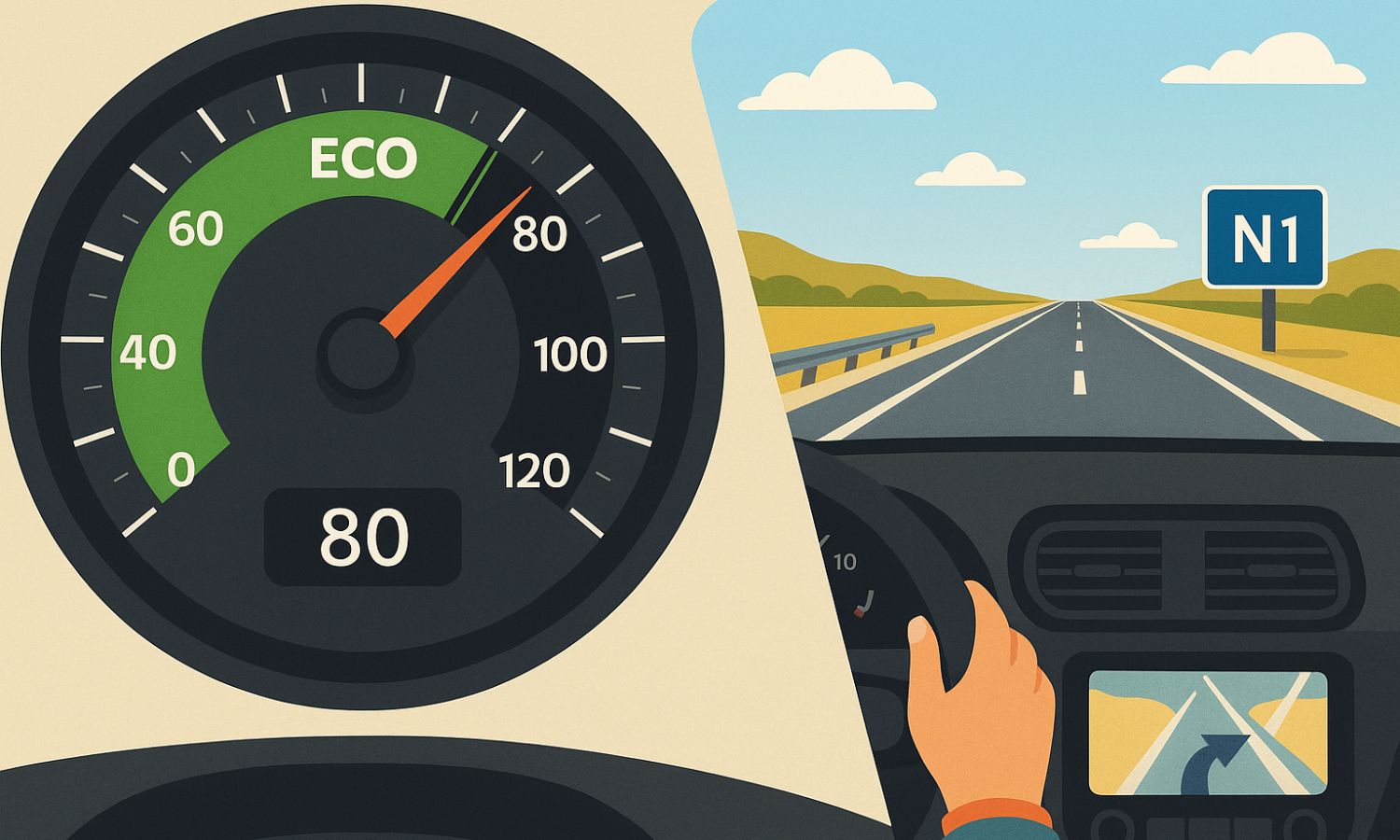
The Goldilocks Speed Zone
Every vehicle has an optimal speed range where it achieves the best fuel efficiency—not too fast, not too slow.
Efficiency Sweet Spot:
- Most vehicles achieve optimal fuel economy between 50-90 km/h
- Fuel consumption typically increases by 15% when driving at 100 km/h versus 80 km/h
Practical Application
Use cruise control on highways to maintain a steady speed within the optimal range. This prevents unconscious speed creep that wastes fuel.
5. Master Steady Acceleration
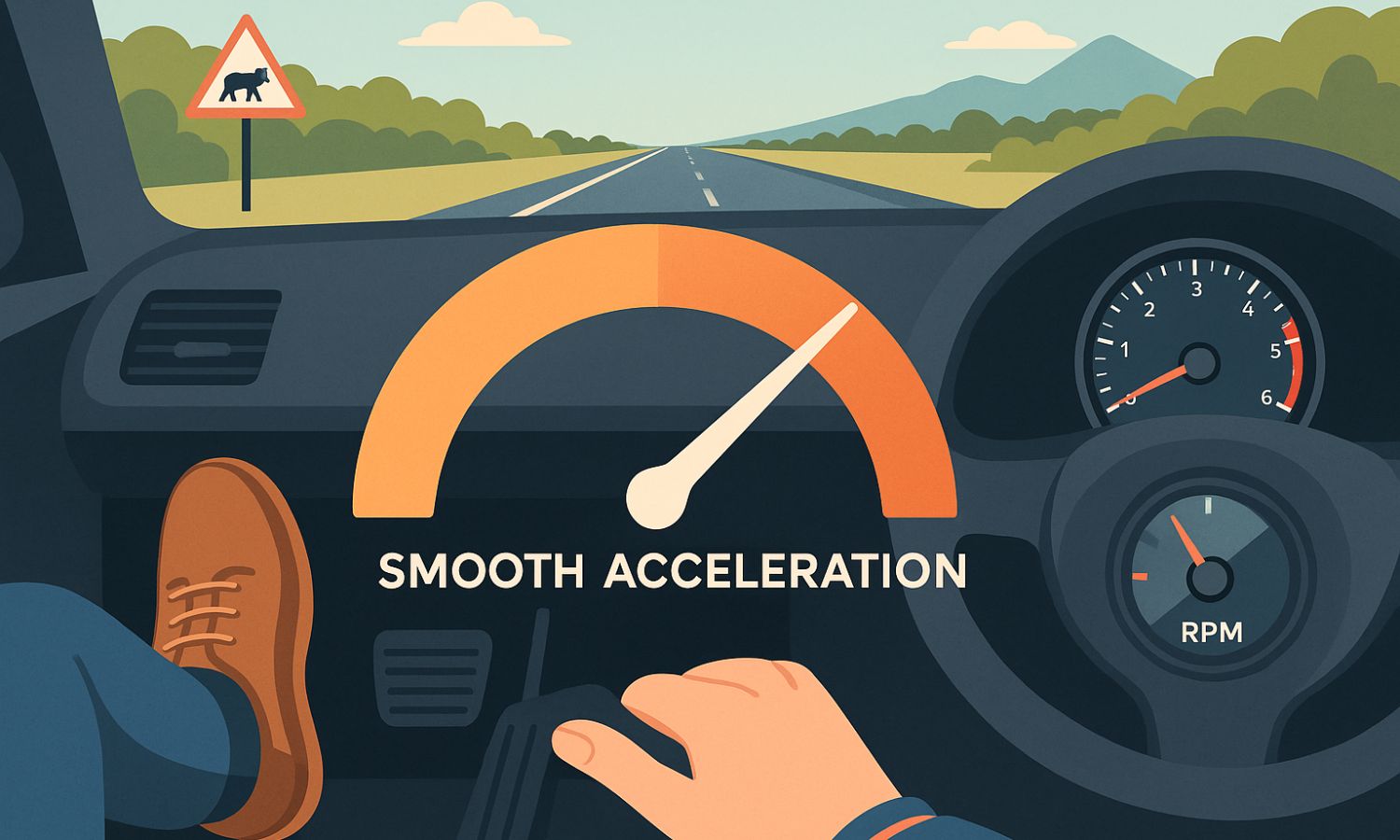
The RPM-Fuel Connection
Rapid accelerations and high engine revs dramatically increase fuel consumption. The gentler you are with the accelerator, the less fuel you’ll use.
Technique Matters:
- Aim to accelerate smoothly, taking about 5 seconds to reach 20 km/h from a stop
- For manual transmissions, shift up at lower RPMs (around 2000-2500 RPM for petrol engines)
Driver’s Tip
Imagine there’s an egg between your foot and the accelerator pedal. Press gently enough not to break the imaginary egg.
6. Avoid Aggressive Braking
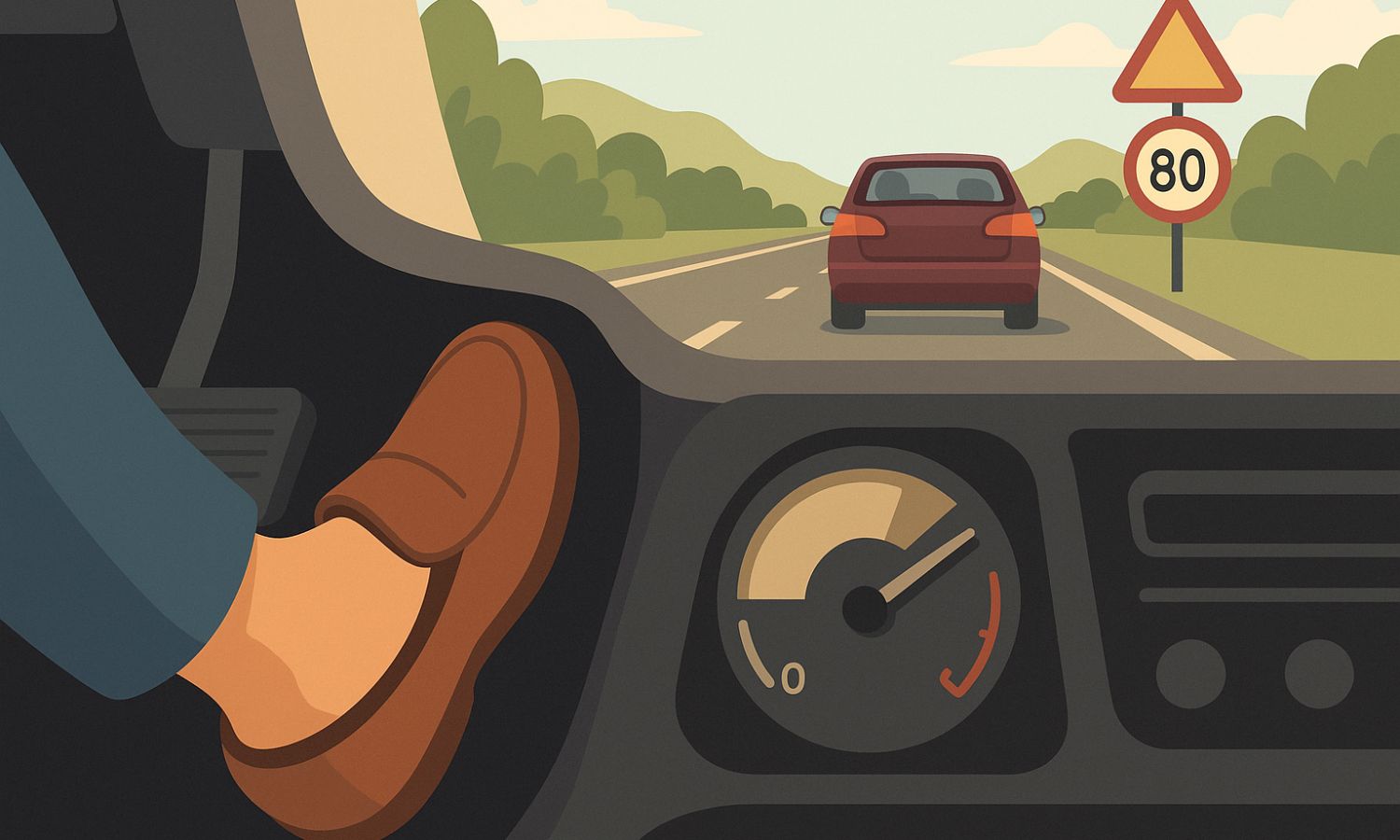
Breaking the Stop-Start Cycle
Hard braking doesn’t just wear out your brakes faster—it wastes the fuel you used to build up speed in the first place.
Safety and Savings:
- Maintaining a 3-second following distance gives you time to brake gradually
- Anticipating stops can reduce fuel consumption by up to 10% in urban driving
Safety First
While fuel efficiency is important, never compromise safety for fuel economy. Always maintain a safe following distance and brake when necessary for safety.
Skill Development
Practice looking at least 12 seconds ahead in traffic (about one block in the city or a quarter kilometer on highways) to anticipate stops early.
7. Utilize Higher Gears
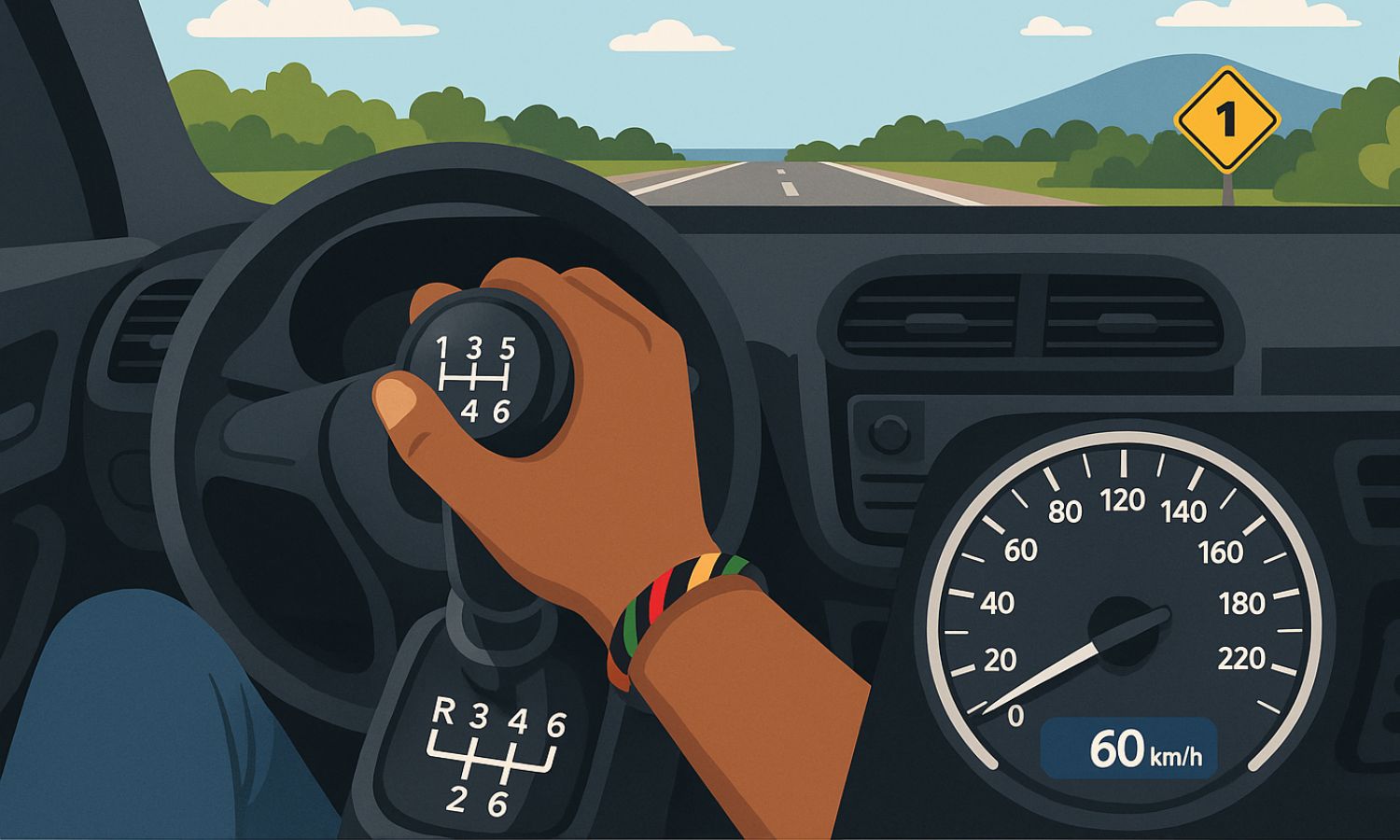
The Engine Efficiency Zone
Modern engines are designed to operate most efficiently at lower RPMs in higher gears.
For Manual Transmissions:
- Shift up as soon as the vehicle can comfortably maintain speed
- A vehicle cruising at 60 km/h can use 25% less fuel in 5th gear compared to 3rd gear
For Automatic Transmissions:
- Use cruise control to maintain steady speeds
- Some automatics have an “ECO” mode that optimizes shift patterns for efficiency
8. Practice Predictive Driving

Reading the Road Ahead
Predictive driving involves observing traffic flow and road conditions to minimize unnecessary acceleration and braking.
Techniques to Master:
- Look for traffic light patterns to time your approach
- Anticipate hills and start accelerating gently before you reach the incline
- Coast when safe to do so, especially when approaching stops
Real-world Impact
Predictive driving techniques can improve fuel economy by 10-30% depending on traffic conditions. This skill alone could save the average South African driver R300-900 per month.
9. Outsmart Rush Hour Traffic

The Stop-and-Go Fuel Drain
Traffic congestion is one of the biggest fuel wasters, with constant acceleration and braking in first or second gear.
Strategic Solutions:
- Use navigation apps like Waze or Google Maps to find less congested routes
- Adjust your schedule to travel outside peak hours if possible
- Consider working from home one or two days a week if your job allows
Tech Tip
Many navigation apps now include fuel-efficient routing options that prioritize steady speeds over shortest distance.
10. Minimize Idling Time
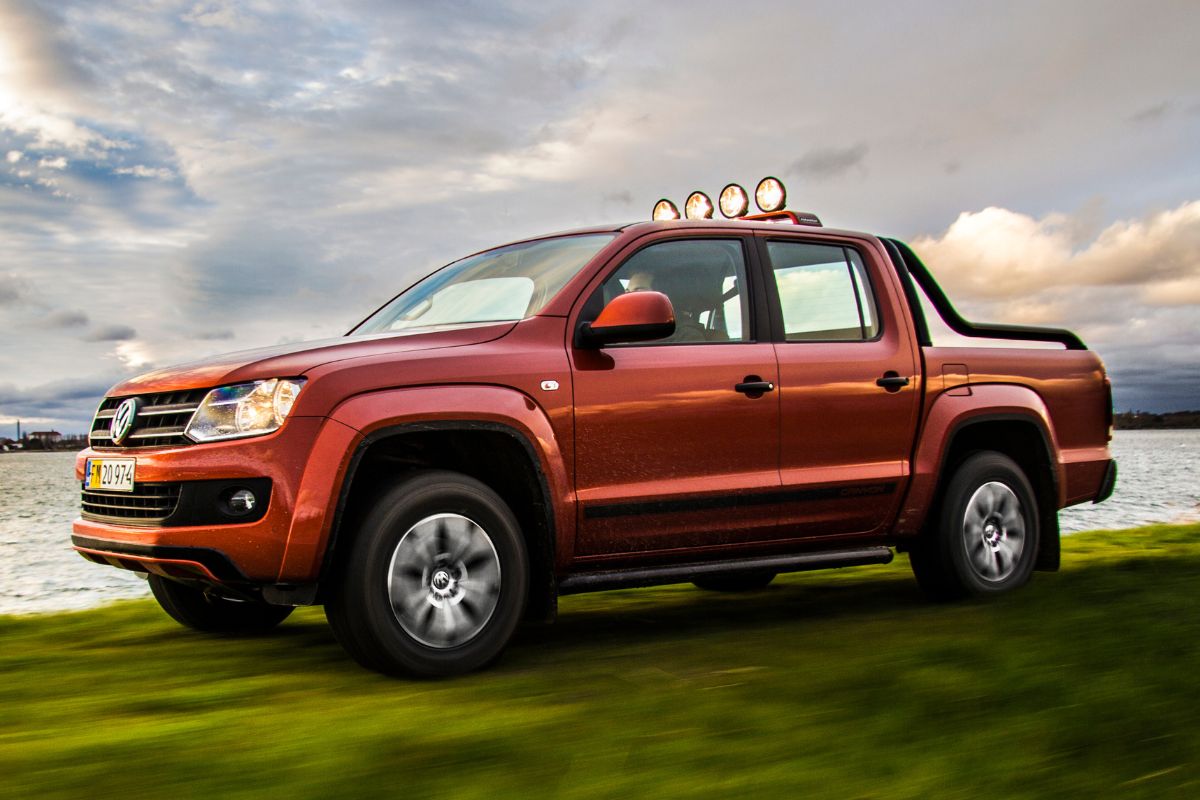
The Zero-Kilometer-Per-Liter Reality
When your car is idling, you’re getting 0 km per liter—the worst possible fuel economy. This is especially problematic with Volkswagen engines, which are designed for efficiency in motion rather than at idle.
Idling Facts:
- Modern engines use less fuel restarting than idling for more than 10 seconds
- Idling for just 10 minutes a day wastes an average of 100 liters of fuel annually
Common Myth
Many people believe that starting and stopping your engine frequently damages the starter or uses more fuel. For modern vehicles, this is false - today’s starters are built to handle frequent use, and restarting uses less fuel than 10 seconds of idling.
Simple Rule
If you’ll be stationary for more than 30 seconds (except in traffic), turn off your engine.
11. Maintain Your Vehicle Regularly
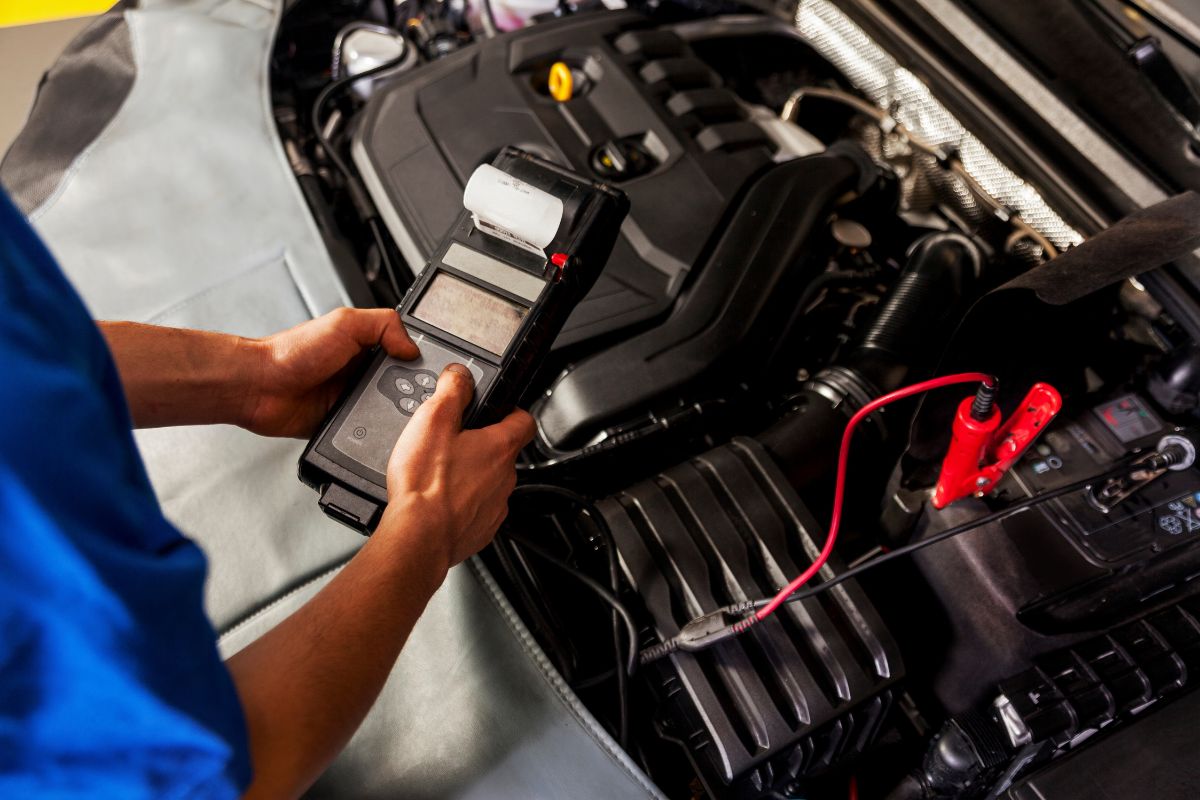
The Efficiency-Maintenance Connection
A well-maintained engine operates more efficiently than a neglected one. Regular servicing is particularly important for vehicles like Toyota and Honda models, which are known for their fuel efficiency when properly maintained.
Maintenance Priorities:
- Replace air filters regularly (dirty filters can reduce fuel economy by up to 10%)
- Use the recommended grade of motor oil (can improve fuel economy by 1-2%)
- Keep your engine tuned according to manufacturer specifications
- Ensure oxygen sensors are working properly (faulty sensors can reduce fuel economy by up to 40%)
Service Schedule Guide
| Service Item | Frequency | Potential Fuel Savings |
|---|---|---|
| Oil Change | Every 5,000-10,000 km | 1-2% |
| Air Filter | Every 15,000-30,000 km | 2-10% |
| Spark Plugs | Every 30,000-100,000 km | 2-30% |
| Oxygen Sensors | When faulty (check engine light) | Up to 40% |
Video Guides
Engineer Explains How to Improve Fuel Economy - Engineering Explained
Engineering Explained provides 10 critical factors that can dramatically impact your car’s fuel efficiency, explained from an engineering perspective with detailed scientific analysis.
How To Get Better Fuel Mileage - Eric The Car Guy
Practical tips from Eric The Car Guy on improving fuel mileage through driving techniques and maintenance practices, perfect for everyday implementation.
Conclusion: Small Changes, Big Savings
By implementing these 11 strategies, you could potentially reduce your fuel consumption by 15-30%. That translates to substantial savings at the pump and a smaller carbon footprint.
If you’ve tried all these tips and your vehicle still seems to be consuming excessive fuel, it might indicate more serious mechanical issues. Some common problems in BMW engines and Mercedes-Benz engines can significantly impact fuel economy. In some cases, an engine replacement might be the most cost-effective solution.
Alternatively, if your car has become too problematic or inefficient, you might consider the option to sell your car for scrap and invest in a more fuel-efficient model. Engine Finder connects you with reliable suppliers of quality used engines throughout South Africa.
Frequently Asked Questions
Q: How much can I realistically save by implementing these tips?
A: Most drivers can expect to save between 15-30% on fuel by consistently applying these techniques.
Q: Does the type of fuel I use make a difference?
A: Yes, using the fuel grade recommended for your vehicle ensures optimal performance and efficiency. This is especially important for high-performance models like Audi and Ford vehicles.
Q: Are fuel additives worth using?
A: Most modern fuels already contain the necessary additives. Additional products generally offer minimal benefits for most vehicles.
Q: How does driving with a roof rack affect fuel consumption?
A: An empty roof rack can increase fuel consumption by around 5%, while a loaded rack can increase it by up to 20% due to increased aerodynamic drag.
Q: Does air conditioning really use that much fuel?
A: Running the AC can increase fuel consumption by 5-10% in city driving and 3-5% on highways.
Q: What’s considered good fuel economy in South Africa?
A: A good fuel economy would be 5-8 liters per 100km for most passenger cars under normal driving conditions. Nissan and Mazda models often achieve these ranges.
Q: Can spark plugs really impact fuel consumption?
A: Yes, worn spark plugs can decrease fuel efficiency by up to 30% as they cause incomplete combustion of fuel.
Q: Which is more fuel-efficient: highway or city driving?
A: Most vehicles are more efficient on highways due to steady speeds and higher gears, though hybrid vehicles may be more efficient in city driving.
Important Disclaimer
This content is for informational purposes only and is based on research from automotive industry sources. Engine Finder is not a certified automotive repair facility. Always consult with qualified automotive professionals before performing any repairs or maintenance. Improper repairs can result in personal injury, property damage, or vehicle malfunction. We assume no responsibility for actions taken based on this information.
